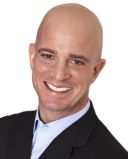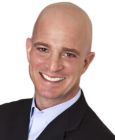Authenticity
A Conversation About Being Cool With Adam Weiner
The Low Cut Connie frontman challenges societal norms to blaze his own path.
Posted April 27, 2021 Reviewed by Ekua Hagan
Key points
- Much of our society seems to glorify celebrity, wealth, or mainstream social status at the expense of people who do not fit in.
- An exclusion process emerges at a very young age, where it seem like the world is made up of “cool” kids and "not-so-cool" kids.
- Through unconditional positive regard, humanistic psychotherapy helps people resist the pressure to conform and to find their unique purpose.
- Adam Weiner of Low Cut Connie shares how rather than trying to be like the cool kids, he blazed his own path toward an authentic life.
Today on The Hardcore Humanism Podcast, we are talking with Adam Weiner — vocalist, musician, and songwriter for the band Low Cut Connie. During quarantine, Adam and Low Cut Connie have been live-streaming a show called Tough Cookies, a combination of a talk show, concert series, and support group for people during the pandemic. And the show has been so successful and had so many great performances that they are putting out an album of the cover songs they performed during the broadcast called Tough Cookies: The Best of the Quarantine Broadcasts. The album will arrive on May 19th and is available to preorder digitally and on CD and vinyl.

One of the reasons that Low Cut Connie’s music so compelling is that Weiner will often write songs about or from the perspective of people who have been marginalized or “forgotten” in our society. Weiner points out in our discussion that much of our society seems to glorify celebrity, wealth, or mainstream social status at the expense of people who do not fit into one of those exalted categories. And this process emerges at a very young age, where it feels as though the world is made up of “cool” kids and not-so-cool kids. The cool kids get rewarded with popularity and having the attention and admiration of other kids and maybe even teachers and parents. They get the benefit of the doubt if they do something wrong. And there’s a sense, either implicitly or even explicitly that we should all try to be one of the cool kids, or at least participate in the admiration.
This unfortunate process can cause a tremendous amount of emotional pain and suffering for those who feel that they are somehow forgotten or excluded. And this pain can endure as people who struggle or do not feel that they do not fit into more traditional norms may experience stigma and discrimination. While not being a part of the “cool kid" group may embolden some people to follow their own unique path, others who feel marginalized may feel less empowered to pursue an authentic vision of their life.
In fact, one of the key goals of humanistic psychotherapy is to provide people who may feel marginalized with the unconditional positive regard that they need in order to push back against those societal pressures. And by pushing back, people can often come to understand who they really are and what they want to do in their life. One of the biggest barriers that we face is trying to be authentic in the face of so many pressures to be otherwise.
And what Adam talks about was how he recognized that he didn’t want to conform and be cool in that sense of the word. When choosing his friends, he gravitated towards people who were more on the fringes. As Adam got older, he was able to dig deeper into the ways that he felt uncool and marginalized. He not only expressed this in his art and performances, but he also found a community of like-minded people who similarly rejected conventional notions of cool in favor of more individuality and authenticity. Adam’s lesson is crucial for anyone who has felt marginalized or treated as "uncool."
References
You can hear Dr. Mike's conversation with Adam Weiner on the Hardcore Humanism Podcast at HardcoreHumanism.com or on your favorite podcast app.


